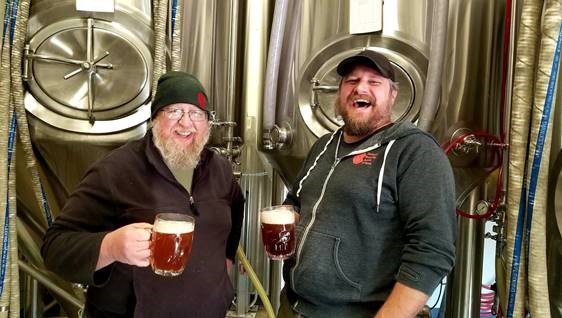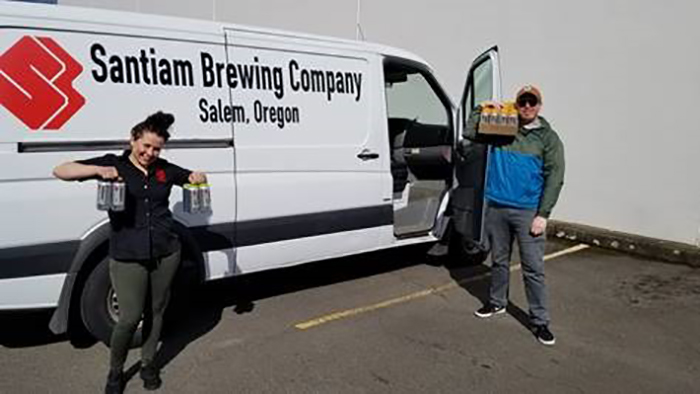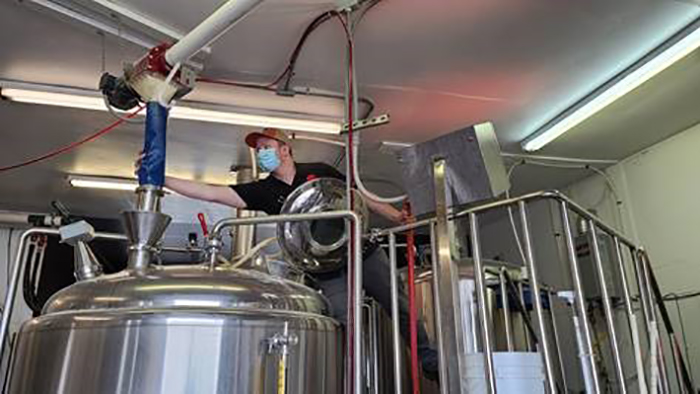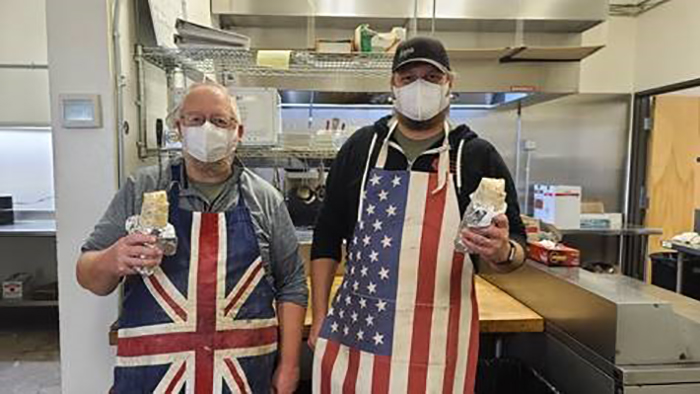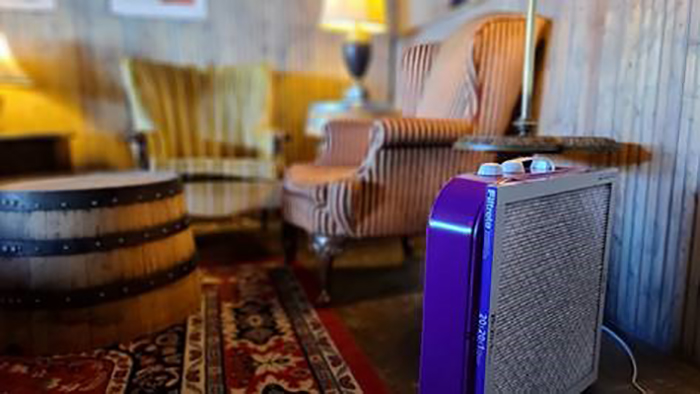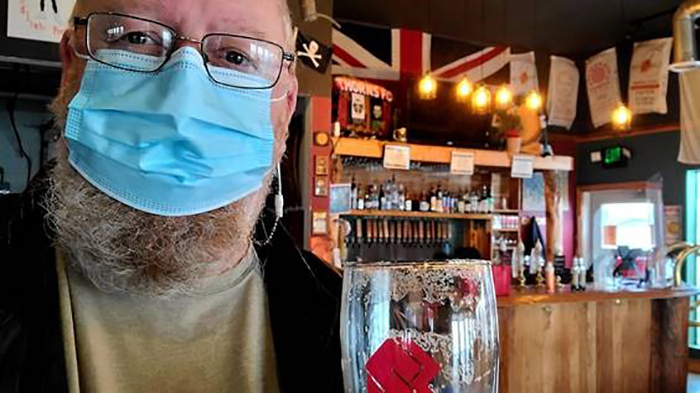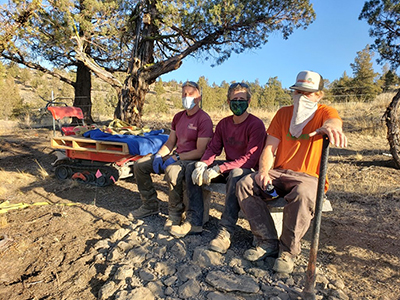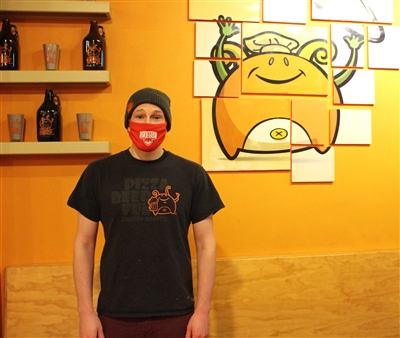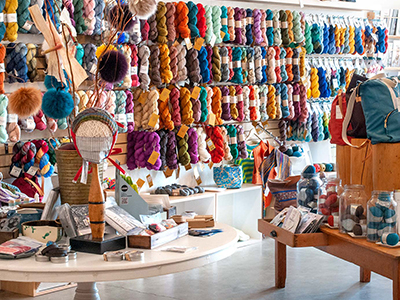Santiam Brewing
Santiam Brewing's recipe for success includes safety, trust, community...and beer
Though their business is beer, community is the heart of Santiam Brewing's operations. From serving more than 1,000 breakfasts to wildfire evacuees to offering groceries when retail stock was low, the Salem brewery hasn't stopped caring for its community. We spoke with owners Ian Croxall and Jim Smiley about how their business has weathered the pandemic and the importance of building trust with their customers.
How did the pandemic affect your business?
Ian: When the shutdown first occurred in March, very quickly there was a food shortage in retail supermarkets. The restaurant industry food chain is serviced by a completely different infrastructure than retail stores. So, while retail was running out of food like flour, beans, yeast, and meat, the restaurant food supply chain was well stocked. We quickly realized we were able to service our customers by doing things like buying 50-pound bags of flour, repackaging them into five-pound Ziploc bags, and selling them directly. We sold toilet paper in individual rolls, face masks, tortilla chips, beans, and flour. At the same time, we were doing food delivery and pickup to go.
When the wildfires hit, I asked the Red Cross what they needed. They said they had everything figured out, except breakfast. We rounded up employees to volunteer and made about 600 breakfasts across two days-over a thousand overall. We just did it on the fly. We made an appeal to our customers, who donated funds for the food.
We've done a few things like that where we didn't think anything of it at the time. This also includes giving unlimited masks to our employees. We told them to take them home and give them to their friends as family. We saw it as protecting ourselves-we don't want an employee who gets COVID. They may share an apartment with other people who may not have access to masks. We gave away hand sanitizer too. It cost a lot of money, but so far, we're safe.
The financial impact is very difficult. There's an overwhelming sense of wanting to keep people safe, but also having to operate. It's difficult to do both, when one of the things that makes this business work is getting bodies into the restaurant.
For example, nitrile gloves are $0.36 a pair. To avoid cross-contamination, you have to discard them if you touch anything. I had an employee ask if they should keep using new pairs, and I told them ‘never ask me if it's cost versus safety. Even if I say no, I expect you to do the right thing.' We can survive running out of money from buying gloves, but we can't survive someone getting sick because we're not following safety guidelines.
How did it affect staff?
Ian: The employees we have now are okay, but we lost some who could not deal with the stress and the fact we could get shut down.
We've had employees that have been badly psychologically affected. A lot of them are young, single people that live alone. They would hang out here after work-it was a place of companionship and social interaction. We call ourselves a pub-a public house where you meet your neighbors, sit, and chat. A lot of our employees are talking about the stress of just going home.
How did it affect customers?
Jim: We've come to realize peoples' trust is the new currency. People-customers or even employees when we eventually can hire-are going to be far more interested in working or going to a place where they feel safe. It's like our policy with masks. If you can't take wearing a mask safely, how do I know you're taking hand washing safely? You can get a good burger at a lot of places in Salem, but how many can you get at a place where they take safety seriously, and their staff takes it seriously?
Ian: It's not just the staff, it's the customers, too. We will yell across the room, ‘put that bloody mask on and sit down!' and people like that-it advertises the fact that we require it.
We see comments on Facebook like ‘go to Santiam, they're doing it correctly.' It's encouraging to us. These things have a cost, and it's nice to see people taking the trouble to leave those comments.
Jim: Another positive thing has been virtual trivia every Wednesday night. Our mantra has been "beer, community, and food." Trying to maintain that community connection has been a challenge. We used to do trivia in our tasting room with one hundred people. We can't do that now, so we moved it to Zoom. Several groups have asked us to continue the virtual option once the pandemic is over.
What advice would you give business owners trying to adapt to the pandemic?
Jim: I think the only advice I'd give is to start from a place of trust. That's the overarching concern for us, anyway. What makes us trust places that we frequent? Where we shop? What can we do to make our customers feel safe, and be safe, in our own place?
What else would you like to add?
Jim: They say the restaurant business can be death by a thousand papercuts-little errors can happen in an operation to cut into profits. My view on this is that the opposite is also true-there aren't a lot of big, lifechanging ideas that we adopted to make a difference. It's a ton of little changes that make a difference and are why we're sitting here today still operating.
Ian: When it all gets down to it, and my back's against the wall, and everything is falling apart around me, I just remember ‘hey, we make alcohol.' I have a beer, and I feel better.
To learn more about Santiam Brewing, visit santiambrewing.com.


